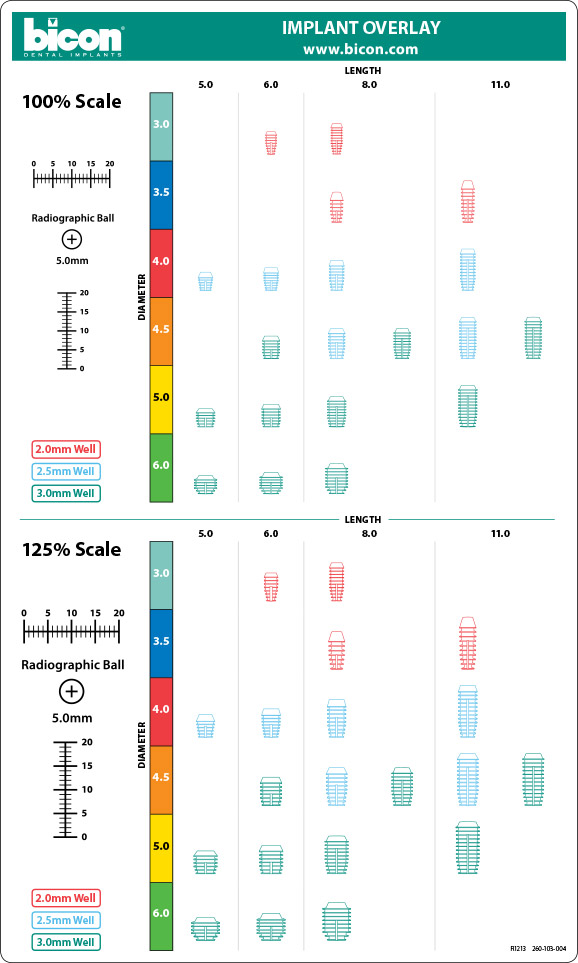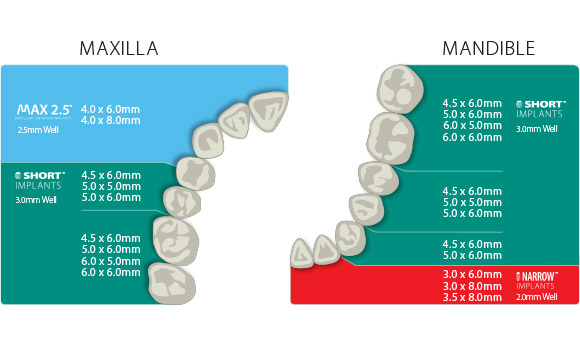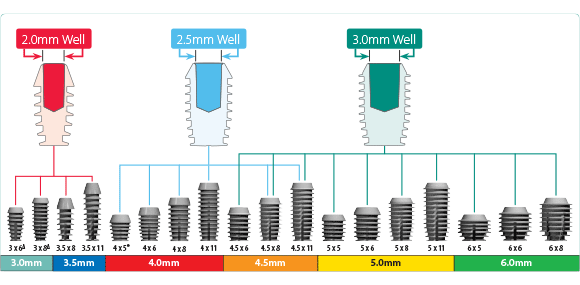Pre-Surgical: Implant Size Selection
Page 1 | Page 2 | Page 3 | Page 4
Implant Size Selection
- The 3.5mm diameter implants are generally for mandibular anterior teeth. If practical, their use should be avoided for maxillary anterior and all posterior teeth.
- From the canine posteriorly, if practical, place one implant per tooth being replaced.
- It is advisable to have at least 1.0mm of bone around the implant. Therefore, an advisable bone width is 5.5mm to comfortably accommodate a 3.5mm implant, unless ridge splitting or grafting techniques are employed to widen the site.
- In the anterior maxilla, it is advisable to place MAX 2.5™ Implants.
- The width of the alveolar bone may be assessed with a periodontal probe or caliper. It is advisable to have 1.0mm of bone around an implant for a long-term favorable prognosis.
- For maxillary anterior implants, always anticipate the potential need for ridge splitting or bone grafting techniques.

Implant Size Recommendations:
The following chart contains recommendations only. Actual clinical conditions and the clinician’s assessment of the patient should be the main criteria for choosing
the size of an implant for a
particular area.


∆ Indicated for lateral & mandibular incisors with a zero degree abutment.
* Recommended for two stage surgical procedure.
Keys to Success
- The 3.5mm diameter implants are generally for mandibular anterior teeth. If practical, their use should be avoided for maxillary anterior and all posterior teeth.
- The 5.0 x 6.0mm implant is capable of supporting any tooth in the dental arch.
- From the canine posteriorly, if practical, place one implant per tooth being replaced.
- Consider using Integra-CP™ implants in poor quality or grafted bone.
- It is advisable to have at least 1.0mm of bone around the implant. Therefore, an advisable bone width is 5.5mm to comfortably accommodate a 3.5mm implant, unless ridge splitting or grafting techniques are employed to widen the site.
- In the anterior maxilla, it is advisable to place MAX 2.5™ Implants.
- The width of the alveolar bone may be assessed with a periodontal probe or caliper. It is advisable to have 1.0mm of bone around an implant for a long-term favorable prognosis.
- For maxillary anterior implants, always anticipate the potential need for ridge splitting or bone grafting techniques.